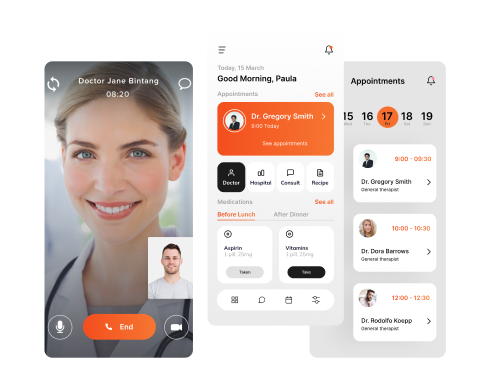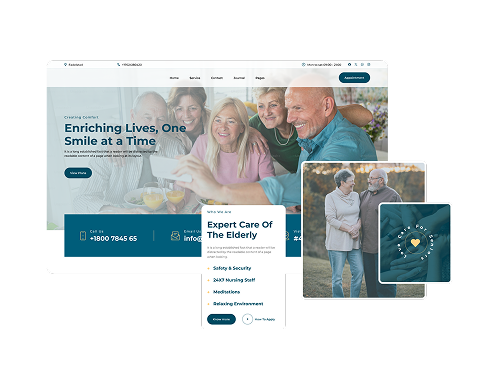Manual & Automated Testing for a Healthcare Document Management Platform
End-to-end QA for a cloud platform helping research sites, sponsors, and CROs streamline workflows, ensure compliance, and manage clinical documentation securely and efficiently.
About Project
Solution
Functional testing, UI/UX testing, Exploratory testing, Compatibility testing, Smoke testing, Sanity testing, Regression testing, Test automation (web & mobile)
Technologies
Selenium IDE, Azure Data Studio, TestRail, XPath Helper, Altair GraphQL Client
Country
United States
Industry
Client
A healthcare technology company developing a cloud-based document management platform for clinical research sites, sponsors, and CROs. The platform helps streamline documentation workflows, improve collaboration, and ensure data security and compliance across all operational levels.
Project overview
Turn your software quality from liability into its strongest feature.
Before
- Fast-paced development process
- Severely limited testing capacity
- No automated test coverage
- Lack of integrated test data management
After
- Expert QA team assembled quickly
- Full support for continuous development
- Compliance-certified QA engineers on board
- Automated regression testing implemented
Project Duration
4 years
Team Composition
3 Manual QAs
6 Automation QAs
1 AQA Lead
Challenge
At the projectâs start, the client faced multiple hurdles that impacted software quality and delivery speed:
- Three development teams working in parallel on different functional areas, requiring coordinated testing efforts;
- Extremely fast development cycles leading to frequent changes and tight deadlines;
- Insufficient internal QA resources to cover all functional areas and keep pace with development;
- Lack of automated testing infrastructure, causing reliance on slow, error-prone manual testing;
- No unified test data management across web and mobile platforms, risking inconsistent test coverage;
- Limited capabilities for testing client-facing notifications, such as email and SMS, which were critical for user communication;
- Absence of CI/CD pipelines integrated with automated test execution and result analysis, slowing feedback loops.
To address these challenges and improve product quality without delaying releases, the client turned to our QA expertise for scalable support and process enhancement.
Solutions
To meet growing quality demands and reduce release bottlenecks, our QA team launched a structured automation strategy early in the project. Initially, the team consisted of three manual testers working in a fast-paced release cycle with expanding functionality. The heavy regression workload, however, made automation a priority.
We began by testing Selenium IDE but quickly switched to Cypress due to its flexibility and scalability. JavaScript became the primary scripting language, and all tests were integrated into CI/CD pipelines via Azure DevOps. This setup allowed us to focus on automating critical business flows while maintaining test reliability.
Over time, our automated test suite grew to over 450 cases running nightly. This significantly reduced manual regression work and improved release stability. The team scaled strategically, and manual testing was phased out for covered scenarios.
We also implemented extensive API testing. This helped us generate reusable test data, validate backend functionality, and speed up test preparation. Cross-platform consistency was ensured across web, mobile, and API layers.
As part of our automation strategy, we incorporated AI-driven tools to support test case generation and maintenance. AI was used to streamline repetitive tasks, suggest coverage improvements based on code changes, and enable test healing for evolving UI components. This helped the team stay agile and reduce maintenance overhead, especially in areas with frequent updates or complex workflows.
Technologies
The choice of technologies is more than just finding the right tech stack for the project to meet its initial goals — it’s also about doing the most with minimum resources used and completing the project objectives right on time.
- Swift
- XCTest
- Jenkins
- BrowserStack
- REST API
- LambdaTest
- Cypress
- Azure DevOps
- Selenium
Types of testing
Compatibility testing
Checking the app’s performance on different devices.
Regression testing
Making sure no old bugs have resurfaced after updates.
Smoke testing
Assessing the new build before to prepare for testing.
Automation testing
Speeding up and enhancing the efficiency of testing.
Results
Our QA team played a key role in delivering a stable and scalable healthcare platform. The shift to automation enabled us to support rapid development while improving test coverage and speed.
Automated regression testing replaced 700-800 hours of manual work. Nightly runs helped catch critical issues early and kept releases on schedule. Cypress allowed us to automate complex scenarios and uncover defects that manual testing missed.
API testing improved test data management and backend reliability. Synchronizing test logic across platforms ensured full coverage and consistent performance. We also implemented testing for client notifications, including email and SMS.
AI-powered tools supported the automation process by helping generate and maintain test cases. Intelligent analysis identified high-impact areas for testing, while self-healing mechanisms ensured that tests adapted quickly to UI changes. This helped the team reduce maintenance effort and stay ahead of regressions in fast-moving codebases.

hours saved with automation

decrease in QA costs

fewer critical bugs in production

issues uncovered using AQ
Is your product market-ready?
Let our QA Ensure top-tier performance with expert QA
Bruce Mason
Delivery Director


